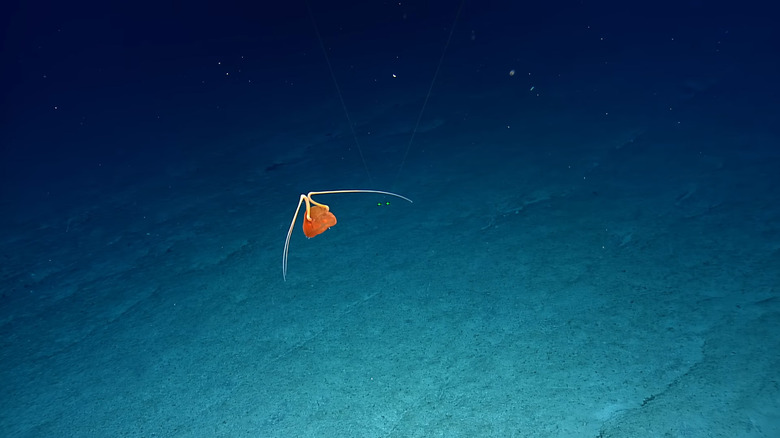Scientists Filmed A Never-Before-Seen Species Of Jellyfish That Hunts And Eats Other Jellyfish
Scientists have captured video of a terrifying species of cannibal jellyfish that they call a "gelatinous predator." The intriguing creature has never been seen before, but researchers found it swimming around at a depth of over 1,400 meters below the Pacific Remote Islands Marine National Monument.
The researchers say the cannibal jellyfish is likely an undescribed species within the Bathykorus genus, which is yet to be revealed. Because of the spread-out tentacles on top of its bell, the researchers believe that this jellyfish eats other gelatinous animals like swimming cucumbers, other jellyfish, and bioluminescent prey, as the depths they are found at are very dark.
Researchers claim that the jellyfish with its three tentacles is quite rare, and that it is also characterized by the three stomach pouches. In fact, this jellyfish is so rare, researchers say that its closest relative was observed for the first and only time nearly a decade ago by one of the NOAA's Ocean Exploration ships within the same region.
The researchers say that this discovery could change what we know about jellyfish completely because, up until now, they've been considered a "trophic dead end." Nothing ever really eats jellyfish because they are mostly made of water and sting an animal's lips whenever they are eaten. However, this cannibal jellyfish shows that something is trying to eat them, as their stomach hides the bioluminescence from the prey it eats.
It's also possible that this newly discovered jellyfish also has bioluminescence, though it could be a different wavelength to the current jellyfish we have discovered. Either way, the discovery is exciting and brings some new data to what has seemed like a long-dead line of creatures.
Considering how deep the oceans are and how little we know about them, more studies of these rare creatures can provide even more information for researchers and scientists to work with.
